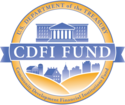COVID-19 Mortgage Forbearance: What To Know
The COVID-19 pandemic disrupted almost everything in our world. It created massive unemployment, hurt countless businesses, and left many people wondering how they were going to make ends meet. Unsurprisingly, the pandemic also had an impact on mortgages. For new buyers, COVID-19 has dropped mortgage rates significantly and made now an exciting and potentially extra-affordable time to buy. On the other hand, many homeowners, suddenly without income, were left with little recourse to pay their monthly bills. According to a survey conducted by the Mortgage Bankers Association, there was a nearly 2,000 percent increase in mortgage forbearance requests between the week of March 16 and the week of March 30. Those numbers tell a clear story: as soon as stay-at-home orders started coming down, and businesses began closing because of the virus, homeowners were seeking mortgage relief.
What Is Mortgage Forbearance?
To understand the exact financial relief that homeowners are seeking due to coronavirus and that you might need if you have missed payments or are unable to make future payments on time–it is essential to discuss the concept of mortgage forbearance in detail.
Essentially, a mortgage forbearance is just a mortgage pause. If your mortgage lender grants you a forbearance, your bond payments will be effectively suspended temporarily. Broadly, the word “forbearance” means restraint or tolerance. In the context of mortgage lending, it means that a lender agrees not to exercise its legal right to enforce the payment of your debt.
One crucial point to note here is that a mortgage forbearance is not a forgiveness of debt, an erasure of debt, or any type of permanent, long-term arrangement. The point of a mortgage forbearance is for the homeowner to have time to get back on their feet, financially, so that they can return to making payments in the future. It is sometimes in the best interest of a creditor to grant forbearance on a loan temporarily as a means of avoiding a default on the loan and any subsequent consequences (such as foreclosure).
Forbearance Options For COVID-19 Pandemic
The good news is that COVID-19 has made it significantly easier for homeowners to be granted mortgage forbearance by their lenders. Part of the Coronavirus Aid, Relief, and Economic Security Act (or the CARES Act) is designed to protect homeowners from losing their homes or being unable to make mortgage payments due to the pandemic. Specifically, there are two different protections for homeowners with Fannie Mae or Freddie Mac mortgages. The first prevents lenders from foreclosing upon mortgage holders until at least August 31 of this year. The second gives mortgage holders up to 180 days (starting on March 18) to request and obtain mortgage forbearance from their lenders.
Both of these protections may prove to be helpful to you at this time, but the latter is the only one related explicitly to mortgage forbearance. What that protection means is that you can apply for mortgage forbearance through mid-September without having to claim any reason other than financial hardship related to the pandemic. Lenders cannot require any other reason, qualification, or documentation, nor can they request you to pay additional interest, fees, or other penalties related to your request or the ultimate forbearance itself.
The short version: the CARES Act gives many Americans the right to obtain mortgage forbearance if they need it due to pandemic-related financial difficulties.
Other Things to Know
If you have a qualifying loan and wish to request mortgage forbearance through your lender, the best thing you can do is start the process sooner rather than later. You don’t want the clock to run out on the CARES Act protections only to find that you need to pause your mortgage after all.
Once you start the process, you can work with your lender to understand how the forbearance will work. These conversations are essential, as they will tell you precisely what to expect. In some cases, the forbearance may be granted in the form of reduced mortgage payments. Other times, you may not be required to make payments at all for several months. Always, though, you will eventually need to repay any missed payments. Talking with your lender will give you an idea of what to expect and how pausing your mortgage now may affect your finances at a later date.
If you have a Fannie Mae or Freddie Mac mortgage, or if your home loan came through VA, FHA, or USDA programs, you will not be expected to pay back your full suspended mortgage amount all at once. However, different mortgages may have different rules, and your lender will likely have various programs that you can enroll in to restart payments and catch up on your missed obligations.
Seek Mortgage Assistance at Resource One Credit Union Today
At Resource One Credit Union, we are here to help our customers through this pandemic (as well as the resulting economic fallout) in any way that we can. Perhaps you’re buying a house and wondering whether you should buy now, given the historically low mortgage rates, or wait for a more stable time. Maybe you want to take advantage of those same low mortgage rates by refinancing your mortgage with us. Or perhaps you are in financial distress and want to learn about what pausing your mortgage with us might mean. Whether you have questions about mortgage rates or mortgage forbearance, you can always count on us to have the answers. Contact us today to have a conversation.





